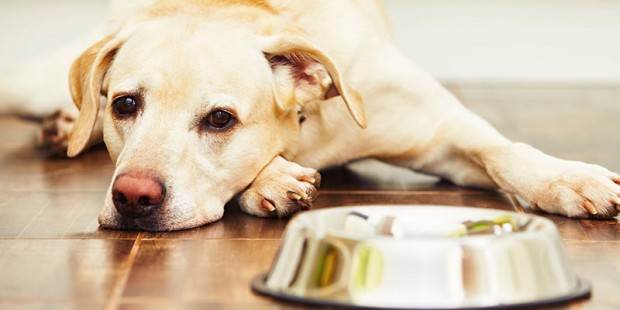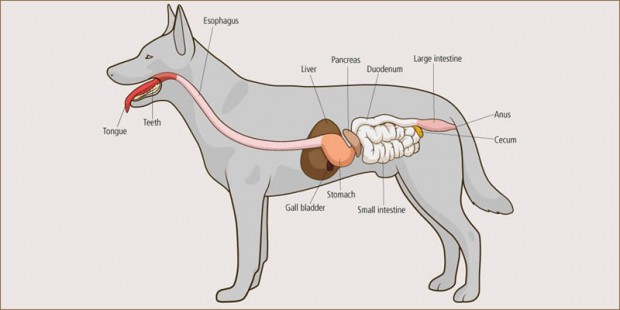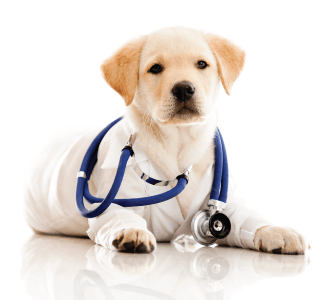Choosing the Correct Diet for Dogs with Gastrointestinal Problems

Keeping your pal safe at all times can be a difficult task and cannot always guarantee complete safety. In some way or the other, your furry friend can catch a disease or two and it is essential to detect it early so as to avoid difficulties in curing it. One such disease that affects dogs in large numbers is gastrointestinal or digestive problems. Such diseases might not be harmful at first but can gradually develop into something serious. This type of disease is highly common across the globe and one of the main reasons behind such a disease is lack of proper feeding habits. Before we dig deep and look at what diet you should feed your pet to avoid gastrointestinal issues, it is mandatory to first know about such a disease and what causes it.
Gastrointestinal and Digestive Diseases in Dogs
Gastrointestinal and digestive issues affect a dog’s digestive system and generally cause immense discomforts like excessive or mild pain in the stomach and intestines. These problems are such that they can even originate in any part of your dog’s body including mouth, liver and pancreas as well. Hence, it is imperative to take care of the gastrointestinal tract by watching what your dog eats (at all times) because most of the digestive issues are due to bad eating habits.
Causes of Gastrointestinal and Digestive Disorders in Dogs
Gastrointestinal disorders can be caused in many ways. Here are some of the common ways in which such issues are caused in dogs.
- Acute Gastroenteritis
- Acute or Chronic Inflammation (Colitis)
- Constipation
- Diarrhea
- Inflammation or Infection in the Pancreas
- Small Intestine Inflammation

Choosing the Right Diet for Gastrointestinal and Digestive Problems in Dogs
One of the best ways to keep your pal well protected from digestion problems is to feed him a proper nutritious meal daily.
Hence, an ideal gastrointestinal diet would be like:
- High Digestibility Levels – Digestibility refers to how quickly and readily the nutrients in food can be digested. While most pet foods come with high digestibility levels, it is essential to get in touch with a vet to help you select the right food for a particular type or breed of pet.
- Excessive Protein Content – Foods containing excessive protein is important in keeping gastrointestinal problems away as it aids in building a stronger and healthier digestive system.
- Less Fat Content – Heavy fat content poses a threat to your dog’s overall health and can slow digestion time as well as increase the possibility of vomiting, diarrhea and acid reflux. This does not mean that fatty substance should be completely avoided. In fact, fat is essential to keep the body warm and thus, lowering the content of fat consumption is a much safer option rather than eliminating it completely.
- Quality of Foods – One of the keys to a healthy diet is the quality of food. Proper quality food will not only result in a healthier lifestyle but will eliminate the risks of succumbing to illness such as gastrointestinal diseases.
- Home Cooked Diet – If pet parents are sceptical about pet diets that are sold in the market, there’s always the option of cooking your pal’s meals. Make sure to add the necessary levels of proteins, fat, vitamins, etc, and you’re good to go.
- Digestive Tablets – If you feel that the diet you are feeding your pal is not the reason behind him falling prey to digestive disorders, you may opt for digestive tablets that are available. They help in curing digestive issues and help in keeping the stomach in proper condition.
Things to Avoid:
- Say No To Food Additives – Adding food preservatives and added flavours to your pal’s meal is like calling for more trouble. These food additives can cause adverse reactions which may lead to further health issues. Hence, it is best to avoid them.
- Go Lactose-Free – As dogs grow older, their ability to quickly digest lactose heavy products gradually diminishes. This, in turn, leads to the food hovering in the body for a longer period of time which develops into gastric problems, stomach bloating and other issues. Thus, avoid diary-related ingredients in your pal’s diet.
Before you change your pooch’s diet, make sure to consult a vet. Also, if you changing his diet, ensure you do it slowly and not all of a sudden.

David joined CanadaVetCare in 2013 as a product analyst and veterinary assistant. Being a passionate pet lover and keen animal health researcher, David had always found ways and solutions to help pet parents to improve their pets’ health. He is always happy to answer pet health-related queries and recommending pet parents for the right pet product for their furry companions.

